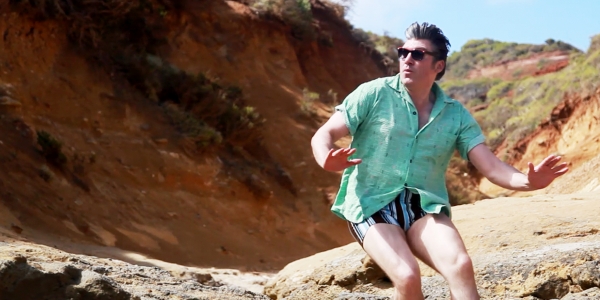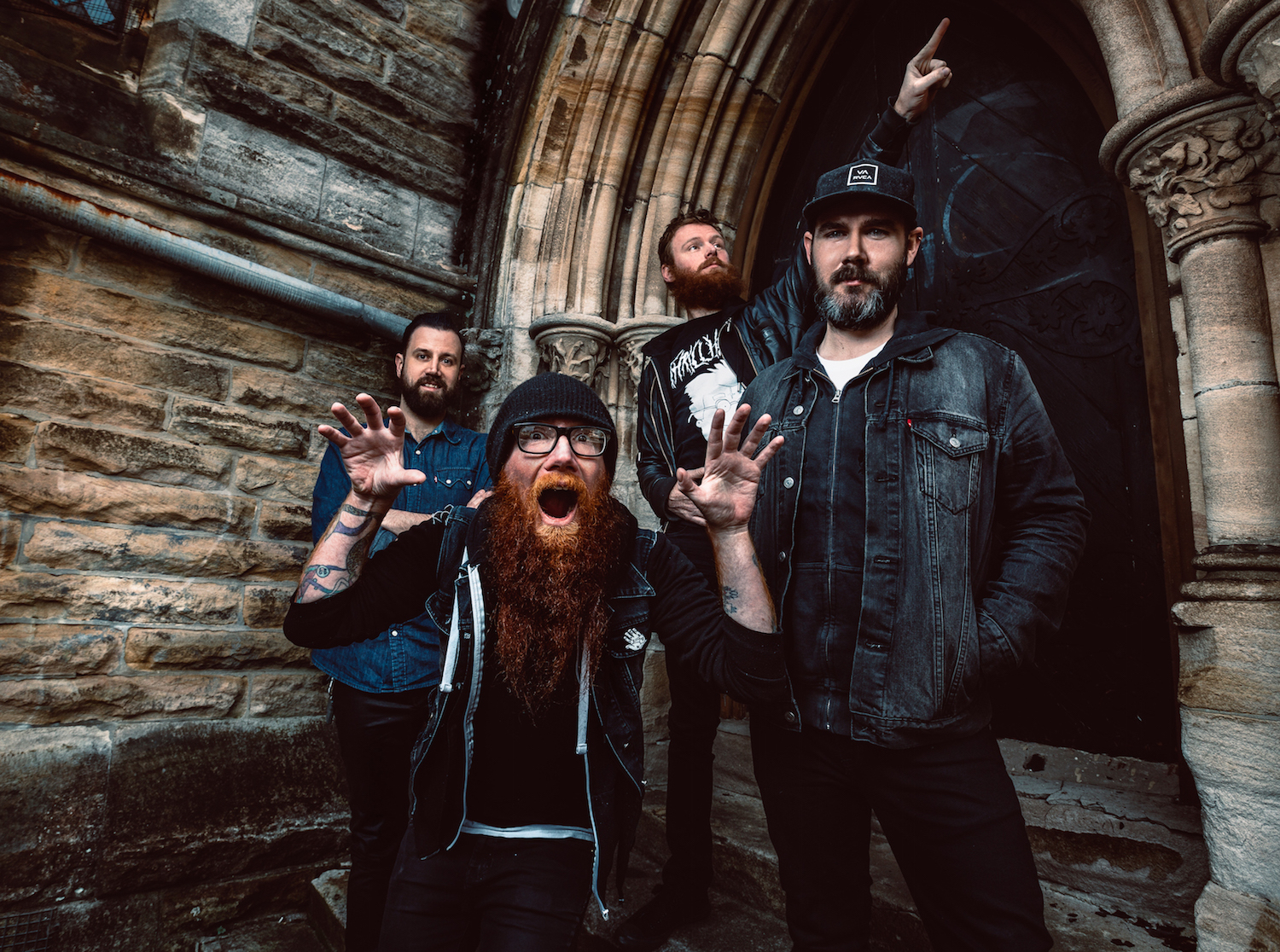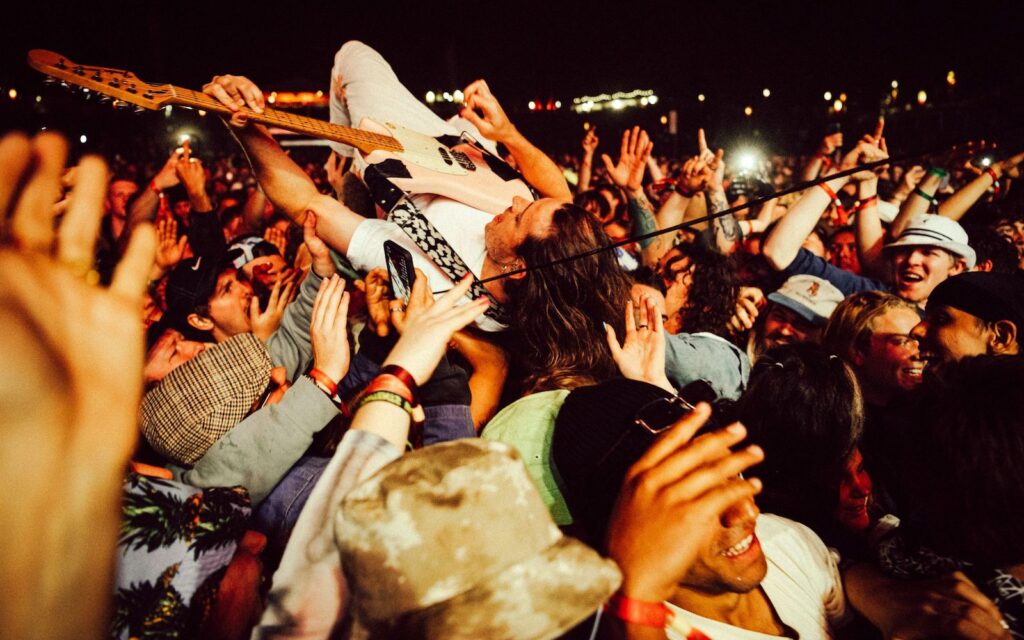“It was something that started on stage,” the frontman says of their motley stage personas. “We didn’t sit down and write character profiles at the start, we just started having fun. We enjoyed it, the audience enjoyed it, and we honed it as we went. 15 years later, our alter egos have massive back stories. There could be a movie about Rufino, our violinist, or The Great Muldavio our clarinet player, who’s also an amazing taxidermist. Stories I can’t even get into now, that I’ll have to tell you all another time, so I won’t even mention about the time he stuffed the Grand Prince of Denmark. It’s fun, but beneath it is a heart that’s quite interesting. They’re more than characters. They take us into another world and help dramatise our music in different ways.”
Mikelangelo is no stranger to theatricality. In addition to the Black Sea Gentlemen, he roams far and wide as a solo act, performing as the Balkan Elvis or a troubadour reimagining the holy trinity of Cave, Waits and Cohen. As we speak, he’s not far from the Snowy Mountains Scheme that provided the genesis for After the Flood. It’s roughly two hours from his house in the coastal village of Tathra, and the confluence of personalities that helped build the hydroelectric dam served as rich soil to shape these songs.
“I’m not going to lie to you. There aren’t many real life people in there,” he says. “But the stories of real people certainly formed it. The way we work, we write a lot from imagination and from things that pique our fascination. We’ve certainly been interested in that Snowy Mountains story because it seemed to be such a fertile place. The story had sat with me for a long time, because my dad came out as a refugee and then migrant worker – he escaped from Communist Yugoslavia, across the border into Italy in 1960. The band are quite inspired by him, he’s this larger than life character. There are people you meet who seem to be so full of joy and conflict and tragedy and wonder and sorrow and laughter, they could be a caricature. If you read them in a book you’d say, ‘People aren’t really like that, bursting from extreme.’ But that’s my dad. And the band are really drawn to this magic realist Eastern European character and idea. And here’s this guy that you love and you know, but he’s a portal to a world you don’t know at all.”
This conversational shift from mountains to family is revealing of the Melbourne-born singer’s personality. Each question opens a cavalcade of reminiscence and insight, where stories overlap and inform each other unexpectedly. The significance of his parents, however, is a recurrent theme, and in no small measure explains his animated personality.
“I learnt very young how to be open to inspiration,” says Mikelangelo. “It’s only when you’re shaping something into a more finished work when it gets tough, but in that initial stage you basically just need to have an open mind and heart. My mother was an interesting woman, a really strong figure. Both she and dad were really into the arts, they taught me that creativity was a great thing, and if I wanted to follow that they weren’t going to interrupt. My earliest memories are of her reading me The Rime of the Ancient Mariner, or singing this gunfighter ballad – ‘As I walked out on the streets of Laredo, as I walked out on Laredo one day, I spied a young cowboy all wrapped in white linen, wrapped in white linen as cold as the clay.’ And for the life of me, I didn’t know if he was alive or dead. Listening these years later I think the cowboy is either dead or dying, but back then I also thought he was wearing a white suit and looking really sharp, and at the same time had this white funeral sheet over him. It was a strange image that I can still see today.”
Juxtaposing these vivid yet contradictory images says a lot of Mikelangelo, and certainly informs the storytelling of his work with the Black Sea Gentlemen. No song is off-limits, no story taboo, guaranteeing that we’ll follow the flood wherever it leads.
“It’s easy for people to say we’re not a real band, we’re just making it up, and of course we’re just fucking making it up. That’s what creativity is, making something that resonates. And that’s where authenticity and truth lies. For some people that’s shoegaze, for some people country and western. For us, music is just this intriguing thing of every style, and you can use any of it. It’s like we’re moving through a movie and you get to meet all of these strange characters along the way all telling their own stories, and that excites me.”
BY ADAM NORRIS







